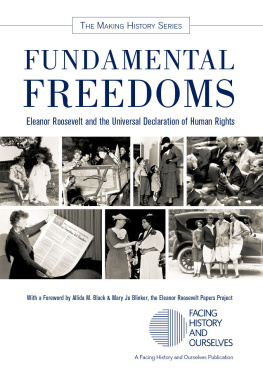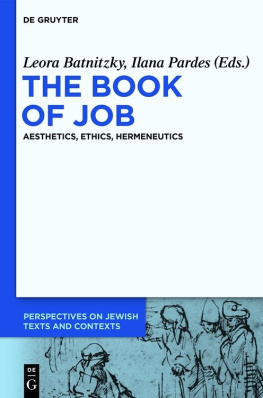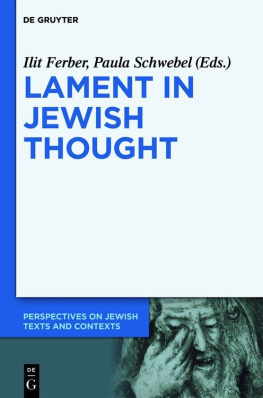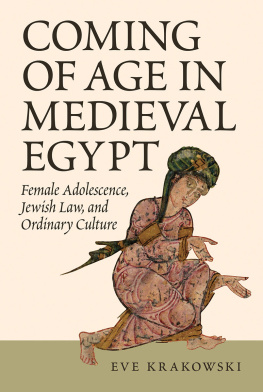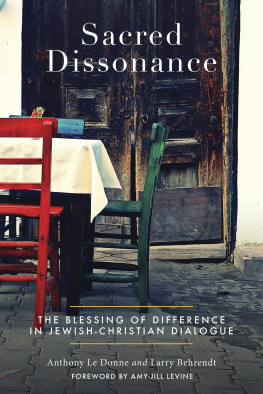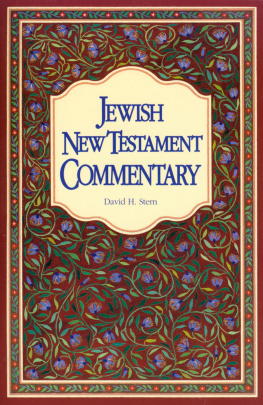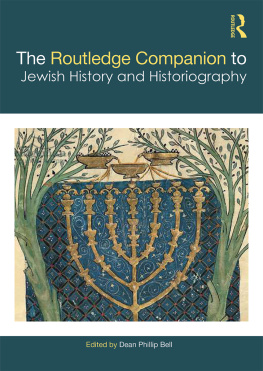SACRED TEXTS,
MODERN QUESTIONS:
Connecting Ethics and History Through a Jewish Lens

Facing History and Ourselves is an international educational and professional development organization whose mission is to engage students of diverse backgrounds in an examination of racism, prejudice, and antisemitism in order to promote the development of a more humane and informed citizenry. By studying the historical development of the Holocaust and other examples of genocide, students make the essential connection between history and the moral choices they confront in their own lives. For more information about Facing History and Ourselves, please visit our website at www.facinghistory.org .
Copyright 2012 by Facing History and Ourselves
National Foundation, Inc. All rights reserved.
Facing History and Ourselves is a trademark
registered in the US Patent & Trademark Office.
Cover art credit: A Tree of Learning by Samuel Bak.
Image courtesy of Pucker Gallery, www.puckergallery.com.
For more information about this resource,
visit www.facinghistory.org/sacredtexts.
ISBN-13: 978-0-9837870-9-9

Facing History and Ourselves Headquarters
16 Hurd Road
Brookline, MA 02445-6919
ABOUT FACING HISTORY
AND OURSELVES
Facing History and Ourselves is a nonprofit educational organization whose mission is to engage students of diverse backgrounds in an examination of racism, prejudice, and antisemitism in order to promote a more humane and informed citizenry. As the name Facing History and Ourselves implies, the organization helps teachers and their students make the essential connections between history and the moral choices they confront in their own lives. The organization offers a framework and a vocabulary for analyzing the meaning and responsibilities of citizenship and the tools to recognize bigotry and indifference in the world today. Through a rigorous examination of the failure of democracy in Germany during the 1920s and 30s and the steps leading to the Holocaust, along with other examples of hatred, collective violence, and genocide in the past century, Facing History and Ourselves provides educators with tools for teaching history and ethics, and for helping their students learn to combat prejudice with compassion, indifference with participation, myth and misinformation with knowledge.
Believing that no classroom exists in isolation, Facing History and Ourselves offers programs and materials to a broad audience of students, parents, teachers, civic leaders, and all of those who play a role in the education of young people. Through significant higher education partnerships, Facing History and Ourselves also reaches and impacts teachers before they enter their classrooms.
By studying the choices that led to critical episodes in history, students learn how issues of identity and membership, ethics and judgment have meaning today and in the future. Facing History and Ourselves resource books provide a meticulously researched yet flexible structure for examining complex events and ideas. Educators can select appropriate readings and draw on additional resources available online or from our comprehensive lending library.
Our primary resource book, Facing History and Ourselves: Holocaust and Human Behavior, follows a sequence of study that begins with identityfirst individual identity and then group and national identities, with their definitions of membership. From there the program examines the failure of democracy in Germany and the steps leading to the Holocaustthe most documented case of twentieth-century indifference, de-humanization, hatred, racism, antisemitism, and mass murder. The program also explores difficult questions of judgment, memory, and legacy, and the necessity for responsible participation to prevent injustice. Facing History and Ourselves then returns to the theme of civic participation to examine stories of individuals, groups, and nations who have worked to build just and inclusive communities and whose stories illuminate the courage, compassion, and political will that are needed to protect democracy today and in generations to come.
Facing History and Ourselves has offices or resource centers in the United States, Canada, and the United Kingdom as well as in-depth partnerships in Rwanda, South Africa, and Northern Ireland. Facing History and Ourselves outreach is global, with educators trained in more than 80 countries and delivery of our resources through a website accessed worldwide with online content delivery, a program for international fellows, and a set of NGO partnerships. By convening conferences of scholars, theologians, educators, and journalists, Facing History and Ourselves materials are kept timely, relevant, and responsive to salient issues of global citizenship in the twenty-first century.
For more than 35 years, Facing History and Ourselves has challenged students and educators to connect the complexities of the past to the moral and ethical issues of today. They explore democratic values and consider what it means to exercise ones rights and responsibilities in the service of a more humane and compassionate world. They become aware that little things are bigseemingly minor decisions can have a major impact and change the course of history.
For more about Facing History and Ourselves, visit our website at www.facinghistory.org.
ACKNOWLEDGMENTS
Facing History and Ourselves is grateful to all those who supported and nourished Sacred Texts, Modern Questions: Connecting Ethics and History Through a Jewish Lens. The organization appreciates the extraordinary assistance it received from the Covenant Foundation. Its trust in our work and its valued advice throughout the writing and editing process have been remarkable. Facing History also wishes to thank the Conference on Jewish Material Claims Against Germany for its continued support and its important contribution to the funding of this project.
Sacred Texts, Modern Questions is the work of the Facing History staff, many of whom served as writers, readers, and editors under the leadership of Margot Stern Strom and Marc Skvirsky. A very special thank-you goes to Jan Darsa, whose vision inspired the creation of this resource. Shira Deener played an crucial role as a team member and believed in this projects potential, and Phyllis Goldsteins talent as a writer and researcher made the final product possible. Facing History also values the suggestions, criticisms, concerns, and guidance provided by Beth Cohen, Amanda Hadad, Doc Miller, Leora Schaefer, Marty Sleeper, Adam Strom, Gabrielle Thal-Pruzan, and Tzipora Weinberg. Their efforts enriched the final product in many ways. In addition, this resource has benefited from the management and production support provided by Anika Bachhuber, Nancy Englander, Victoria Frothingham, Brooke Harvey, April Lambert, Catherine OKeefe, and Chris Stokes. Anne Burt, Dan Merrick, Liz Kelleher, Julia Rappaport, and Emily Blackie contributed their talents by spreading the word about this invaluable resource.
Much appreciation also goes to Rabbi Geoff Mitelman, whose ideas sparked the initial stages of Sacred Texts, Modern Questions; Felisa Tibbitts, who worked on the evaluation; Michelle Kwitkin-Close, who served as copyeditor; Celene Clark, who designed the materials; and Joni Sue Blinderman, who shared her wisdom and offered her guidance. Facing History is also grateful to the teachers who piloted lessons and offered valuable suggestionsparticularly to Dr. Jack Lipinsky, who worked closely with the Facing History team in creating and testing lessons.


